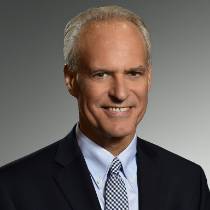Faculty Highlight: Henry Sokolski

MIAGE PROVIDES YOU THE OPPORTUNITY TO LEARN FROM EXPERTS IN THE FIELD
This spring semester, MIAGE students have had the opportunity to learn the Fundamentals of Nuclear Policy by Henry Sokolski, Executive Director of the Nonproliferation Policy Education Center (NPEC) and former Deputy for Nonproliferation Policy at the Pentagon. NPEC is a Washington-based nonprofit organization founded in 1994 to promote a better understanding of strategic weapons proliferation issues among policymakers, scholars, and the media. The course focuses on questions central to assessing the merits of any nation’s civil and military nuclear policies. Course topics include nuclear deterrence, nuclear energy and technology, the history of nuclear nonproliferation and arms control, energy economics, nuclear terrorism and intelligence, and future strategic weapons trends.
Henry Sokolski has has authored and edited a number of books on nuclear proliferation, including Underestimated: Our Not So Peaceful Nuclear Future, (2016); Best of Intentions: America's Campaign Against Strategic Weapons Proliferation, (2001); Should We Let the Bomb Spread?, (Carlisle, PA: Strategic Studies Institute, 2016); and Moving Beyond Pretense: Nuclear Power and Nonproliferation, (2014). Most recently, Sokolski's article The Nuclear Proliferation Challenge: Improving the Role of Intelligence in Counterproliferation Policymaking was published as the cover story in the unclassified Studies in Intelligence, Journal of the American Intelligence Professional, Vol. 63, No. 1 (March 2019). The mission of Studies in Intelligence is to stimulate within the Intelligence Community the constructive discussion of important issues of the day, to expand knowledge of lessons learned from past experiences, to increase understanding of the history of the profession, and to provide readers with considered reviews of public media concerning intelligence. This publication is prepared primarily for the use of US government officials, and has the potential to impact policy development.
In his piece, Sokolski presents a report sponsored by NPEC that focused on the following broad questions: How can the role of intelligence in the making of nonproliferation policy be improved? How can the nonproliferation agenda get the priority it deserves?; and how can the nonproliferation community be sustained and strengthened? To address these questions, Sokolski and NPEC engaged more than 50 senior, retired and serving policymakers, intelligence officers, and top academic national security analysts that helped develop new primary histories of eight nuclear proliferation cases: India, Pakistan, Israel, Taiwan, South Korea, Libya, and an Argentine and a separate South African nuclear rocket case. "The purpose of the case studies," he says, "was to identify when and how intelligence shaped or prompted nonproliferation policy actions and, if it did not, why."
Henry Sokolski currently teaches as an adjunct professor at The Institute of World Politics in Washington, D.C. And is a visiting professor at the Master of International Affairs and Global Enterprise program at the University of Utah. From 1989 to 1993, Sokolski served as the Deputy for Nonproliferation Policy in the Office of the Secretary of Defense, for which he received the Secretary of Defense's Medal for Outstanding Public Service. Prior to this, he worked in the Secretary of Defense's Office of Net Assessment on strategic weapons proliferation issues.
In addition to his Executive Branch service, Sokolski worked on the Hill from 1984 through 1988 as senior military legislative aide to Senate Armed Services Committee member Dan Quayle and from 1982 through 1983 as special assistant on nuclear energy matters to TVA Subcommittee Chairman Senator Gordon J. Humphrey. He also worked as a consultant on nuclear weapons proliferation issues to the Intelligence Community's National Intelligence Council; received a Congressional appointment to the Deutch Proliferation Commission, which completed its report in July 1999; served as a member of the Central Intelligence Agency's Senior Advisory Panel from 1995 to 1996; and was a member of the Commission on the Prevention of Weapons of Mass Destruction Proliferation and Terrorism, which operated until 2010. Sokolski has been a resident fellow at the National Institute for Public Policy, the Heritage Foundation, and the Hoover Institution. He also has taught political science courses at the University of Chicago, Rosary College, Georgetown, and Loyola University. Sokolski attended the University of Southern California and Pomona College and completed his graduate studies in political science at the University of Chicago.
You can read Henry Sokolski's piece The Nuclear Proliferation Challenge: Improving the Role of Intelligence in Counterproliferation Policymaking by following this link.
